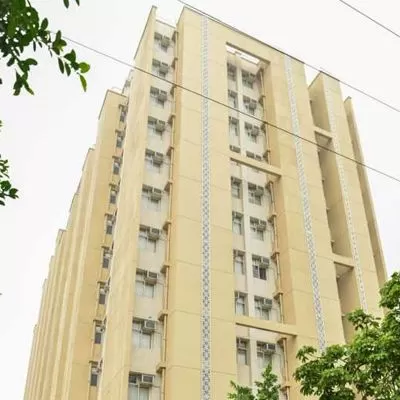Schedule a Call Back
COVID-19 Blues: Govt Moves in to Provide Relief to a Stalled Economy
2020-03-31
 The world?s largest lockdown is expected to have a significant impact on India. Affecting over 1.33 billion people, among other things, the shutdown will set the clock on India?s humongous infrastructure sector back by several weeks if not months. However, recent moves by the government may yet help to provide much-needed support.
Agencies like Asian Development Bank (ADB), Organisation for Economic Cooperation and Development (OECD), Fitch Ratings and Moody?s have already forecast that the world?s fifth-largest economy will likely experience lower growth during the fourth quarter of 2019-20. Stockbroking firm Barclays has calculated the cumulative cost of the 21-day lockdown on India in the region of $120 billion
Several key infrastructure projects have suffered a temporary setback. Following advisories on containment of the COVID-19 pandemic from the federal and state governments, work on elevated roads, rail & metro rail, airport and residential real estate projects have stalled for the time being.
The world?s largest lockdown is expected to have a significant impact on India. Affecting over 1.33 billion people, among other things, the shutdown will set the clock on India?s humongous infrastructure sector back by several weeks if not months. However, recent moves by the government may yet help to provide much-needed support.
Agencies like Asian Development Bank (ADB), Organisation for Economic Cooperation and Development (OECD), Fitch Ratings and Moody?s have already forecast that the world?s fifth-largest economy will likely experience lower growth during the fourth quarter of 2019-20. Stockbroking firm Barclays has calculated the cumulative cost of the 21-day lockdown on India in the region of $120 billion
Several key infrastructure projects have suffered a temporary setback. Following advisories on containment of the COVID-19 pandemic from the federal and state governments, work on elevated roads, rail & metro rail, airport and residential real estate projects have stalled for the time being.

Moreover, suspension of rail and air travel will further impact the bottom line of the beleaguered Indian railways as well as the country?s airline companies. The economic slowdown, coupled with supply disruptions both nationally and internationally, has also impacted the logistics sector. Bulk cargo movement at the country?s ports has declined since January due to the shutdown in China, affecting earnings at Indian shipping companies. Closure of malls and cinemas across the country has resulted in -3.6% negative growth in power consumption in the first two weeks of March on a month-over-month basis. The late arrival of solar modules from China has led the developers of solar energy projects to face a shortage and consequent delays. In a significant move aimed at social distancing and protecting the workforce from infection, India?s leading cement manufacturer Dalmia Cement (Bharat) Ltd suspended cement production across all its plant locations in the country. The company operates across nine states and 12 manufacturing units with a combined annual capacity of 26.5 million tonnes (MT). Commenting on the decision, Mahendra Singhi, Managing Director & CEO, Dalmia Cement (Bharat) remarked, ?In line with the continuous appeal for social distancing by Hon?ble Prime Minister and Hon?ble Chief Ministers of states where we have our operations, we decided to suspend production across all our plants. The plants will remain closed until further notice.?

Policy Support
The slump triggered by the pandemic has led India Inc. to demand appropriate fiscal and non-fiscal interventions from the government. A day after Finance Minister Nirmala Sitharaman committed a $22.5 billion spending to provide relief to the poor, the Reserve Bank of India (RBI) announced a series of steps to support the economy. The central bank?s Monetary Policy Committee (MPC) announced a repo rate cut of 75 basis points to 4.4 per cent, a three-month moratorium on easy monthly installments (EMI) on all outstanding loans and a three-way liquidity injection of Rs 3.74 trillion into the economy. RBI Governor Shaktikanta Das also emphasised on providing lending to the stressed areas of the economy. Hailing the move, Chandrajit Banerjee, Director General, Confederation of the Indian Industry (CII) said, ?Given that the current lockdown is expected to have a negative impact on the cash flows of companies, the moratorium on repayments of term loans for a period of three months will help companies tide over this period.? He urged for a further extension in case the impact of the virus outbreak continued longer. Dr. Sangeeta Reddy, President, Federation of Indian Chambers of Commerce & Industry (FICCI) said, ?If the money released into the system reaches the corporates through greater lending, investments in commercial paper, non-convertible debentures and corporate bonds, we will be able to see through this difficult phase whose different facets are still getting uncovered.? She felt that RBI?s decision to allow banks to hold their investments in these corporate instruments till maturity would provide a lot of comfort to banks as the current market conditions were ?quite volatile?. ?In the crucial time where Indian economy is battling the exponential contagion, fresh liquidity pumped in the system will certainly help to mitigate the stressed cash flow and debt pressure in the economic system, said Dr. Niranjan Hiranandani, President, Associated Chambers of Commerce and Industry (ASSOCHAM) and National Real Estate Development Council (NAREDCO). Dr. Hiranandani added that the central bank had packaged the relief measures by amplifying all the best instruments for troubleshooting. To achieve its target of becoming a $5 trillion economy by 2024-25, India needs to spend about Rs 140 trillion on infrastructure over the next five years. In December, the country had unveiled the Rs 102 trillion National Infrastructure Pipeline (NIP) to boost annual investment in the sector. - Manish Pant


Subscribe Now
Subscribe to our Newsletter & Stay updated
RECENT POSTS
Popular Tags
Folliow us











